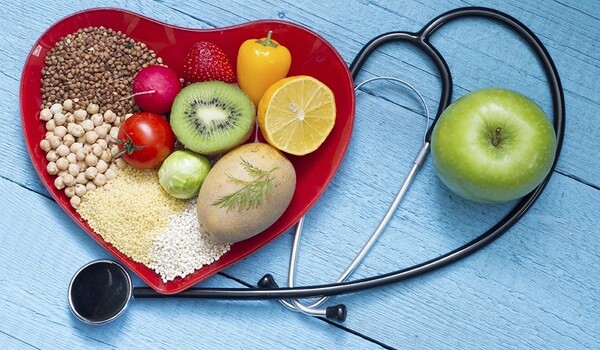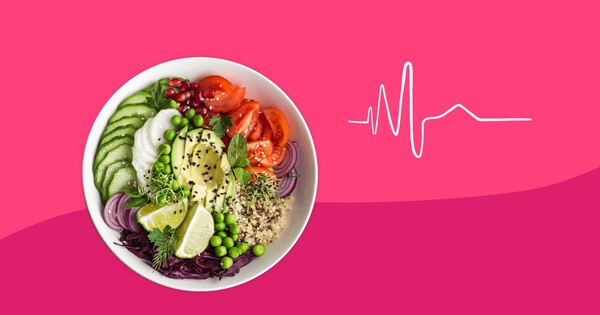Consuming more fruits and vegetables to reduce dietary acid reduces blood pressure and improves kidney and heart health in hypertensive individuals.
Doctors propose incorporating fruits and vegetables into the therapy of hypertensive patients. Fruit and vegetable-rich diets have been shown to lower blood pressure, minimize cardiovascular risk, and improve kidney health due to their base-forming properties. A new study in The American Journal of Medicine, published by Elsevier, describes the results of a five-year interventional randomized control experiment.
Despite continued attempts to improve hypertension management and reduce unfavorable outcomes through pharmaceutical interventions, hypertension-related chronic renal disease and cardiovascular mortality are on the rise. Heart disease is the leading cause of death among persons with chronic renal disease.
The DASH diet, which is high in fruits and vegetables, lowers blood pressure and is suggested as the first-line treatment for primary hypertension. Nonetheless, this diet is under-recommended and, when prescribed, under-implemented, despite strong epidemiological evidence. The DASH diet, as well as other diets high in fruits and vegetables, has been linked to reduced blood pressure, a lower risk for and progression of chronic kidney disease, lower cardiovascular disease risk markers, and decreased cardiovascular disease mortality.
Fruits and vegetables achieved the latter two benefits with lower doses of medication used to lower blood pressure and reduce cardiovascular disease risk.
Donald E. Wesson
Lead investigator of the study Donald E. Wesson, MD, MBA, Department of Internal Medicine, Dell Medical School — The University of Texas at Austin, says, “As a nephrologist (kidney doctor), my acid-base laboratory studies ways by which the kidney removes acid from the blood and puts it into the urine. Our animal studies showed years ago that mechanisms used by kidneys to remove acid from the blood can cause kidney injury if the animals were chronically (long term) exposed to an acid-producing diet. Our patient studies showed similar findings: that is, an acid-producing diet (one high in animal products) was kidney-harmful, and one that is base-producing (one high in fruits and vegetables) is kidney-healthy. Other investigators showed that a diet high in fruits and vegetables is heart-healthy. We hypothesized that one way that fruits and vegetables are both kidney- and heart-healthy is that they reduce the amount of acid in the diet and therefore the amount of acid that kidneys have to remove from the body.”
To test this hypothesis, a study was designed in which participants with hypertension, but not diabetes, and very high levels of urine albumin excretion (macroalbuminuria) were selected. Patients with macroalbuminuria have chronic kidney disease, a high risk for the worsening of their kidney disease with time, and a high risk to subsequently develop cardiovascular diseases. In a randomized control trial over a five-year period, investigators divided the cohort of 153 patients with hypertension into three groups:
- Study participants adding 2-4 cups of base-producing fruits and vegetables in addition to their usual daily food intake
- Study participants prescribed NaHCO3 (acid-reducing sodium bicarbonate, which is common baking soda) tablets in two daily doses of 4-5 650 mg tablets
- Study participants receiving standard medical care from primary care clinicians
The results of the study show that both fruits and vegetables and NaHCO3 improved kidney health, but only fruits and vegetables, and not NaHCO3, reduced blood pressure and improved indices of cardiovascular disease risk.

According to co-investigator Maninder Kahlon, PhD, Department of Population Health, Dell Medical School – The University of Texas at Austin, “Fruits and vegetables achieved the latter two benefits with lower doses of medication used to lower blood pressure and reduce cardiovascular disease risk.” This suggests that while both fruits and vegetables and NaHCO3 can provide renal health advantages, fruits and vegetables provide blood pressure reduction and a lower risk of cardiovascular disease. This supports our recommendation that fruits and vegetables be used as ‘foundational’ treatment for hypertensive patients because they achieve all three goals (kidney health, lower blood pressure, and reduced cardiovascular disease risk) while requiring fewer medication doses.
The research team emphasized “foundational” since many practitioners start hypertension treatment with medicines and then add diet recommendations if blood pressure isn’t under control. The findings of its investigations support the opposite: treatment should begin with fruits and vegetables, with medications added as needed.
Dr. Wesson writes, “Dietary interventions for chronic disease management are frequently not recommended and even less frequently carried out due to the numerous challenges that patients face in implementing them.” Nonetheless, they are useful, particularly for kidney and cardiovascular health. We must step up our efforts to incorporate them into patient care and, more broadly, make healthy diets more accessible to those at higher risk for kidney and cardiovascular disease.”
















